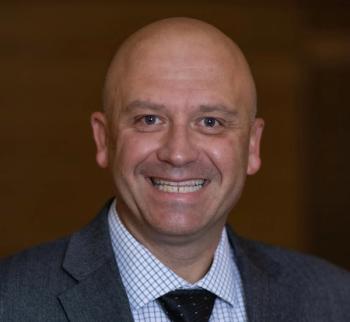
Insurers vow to speed up approvals, but providers want ‘more than promises’
Health plans announced plans to simplify the prior authorization process and make it faster. Doctors and hospitals have said authorization delays hurt patients and drive up costs.
Health insurance companies are pledging to radically approve the process of authorizing treatments, which has long been a sore spot for hospitals and physicians.
Insurers say they’re going to speed up prior authorizations substantially, vowing that 80% of all authorizations will be handled in real time by 2027, according to AHIP, the trade group representing health insurance companies. Health plans made the announcement Monday.
Health insurance companies also said they are committed to standardizing electronic prior authorizations and reducing the volume of treatments that require pre-approval.
Groups representing doctors and providers say the insurers are offering positive steps, but they also said they’ve heard health plans make pledges for reform that haven’t come to fruition.
Doctors argue that the flawed process hurts patients, and some commenting on social media wondered why some of the reforms couldn’t be implemented immediately.
Still,
Mike Tuffin, president and CEO of AHIP, acknowledged in a statement touting the commitment that the prior authorization process is frustrating patients and providers.
“Health plans are making voluntary commitments to deliver a more seamless patient experience and enable providers to focus on patient care, while also helping to modernize the system,” Tuffin said in a statement.
Health & Human Services Secretary
Oz praised the insurance companies for taking voluntary action to improve, calling it “a step in the right direction toward restoring trust, easing burdens on providers, and helping patients receive timely, evidence-based care.” In a statement, Oz also said CMS “will be evaluating progress and driving accountability.”
Seeking ‘enforceable protections’
Soumi Saha, senior vice president of government affairs for Premier Inc., said the company is encouraged by the commitment of health plans. But she said providers want to see evidence of change and she hopes policymakers will push for “real reform.”
“Real-time approvals, fewer hoops for providers and honoring prior authorizations across plans are all steps in the right direction,” Saha said in a statement. “Still, voluntary pledges aren’t the same as enforceable protections. Patients and providers deserve more than promises—they deserve accountability.”
Speaking
Anders Gilberg, senior vice president of the Medical Group Management Association, said Monday that the group is “encouraged” by the announcement from health plans, but noted that some of the plans reflect federal mandates for Medicare Advantage plans and Medicaid managed care plans. Gilberg also pointed to
“MGMA joined a consensus statement with provider groups and health plans in 2018 that had similar agreed-upon principles for improving prior authorization, yet year-after-year we continue to hear from physician practices that it is their number one administrative burden,” Gilberg said in a statement. “Seven years after the consensus statement and several CMS final rules later, health insurers appear to finally be taking steps toward implementation.”
Years of clashes
Insurers have long said that prior authorization of treatments and procedures is a necessary mechanism to control costs and curb unnecessary surgeries.
Beginning in 2026, health plans say they will honor existing prior authorizations for patients switching plans for a 90-day period. They also said that they would provide clear guidance on the prior authorization process and how patients can appeal, with better explanations for consumers beginning Jan. 1, 2026.
Doctors and hospitals argue that
Doctors have long complained that the process of securing prior authorization for treatments and procedures is far too time-consuming and interferes with patient care. In an American Medical Association survey released last year, the vast majority of physicians (94%) said
A survey of 1,000 consumers released last month by DrFirst found that more than a quarter (27%) of respondents waited at least two weeks for an authorization, while more than a third (36%) said they had at least one denial.
Providers and some lawmakers have grown increasingly frustrated with the increasing level of denials in Medicare Advantage plans. A bipartisan group of lawmakers have introduced legislation in the House and Senate
Nearly one-third (30.5%) of Medicare Advantage claims required prior authorization in 2023, up from 25% in 2022,




























































































